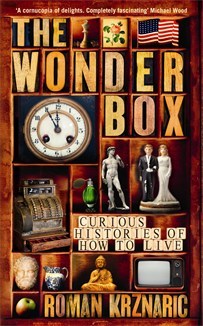More on this book
Kindle Notes & Highlights
We also become spiritually poorer. Consumerism encourages us to define freedom as a choice between brands. It asks us to express who we are through the language of products, while at the same time shaping our ideals of what it is important to own. The good life becomes a matter of satisfying consumer desires to the detriment of alternatives like spending time with our families, enjoying our work or living ethically. Our values become material values. This is a historical legacy that few of us have escaped and none of us can ignore.
Since at least the eighteenth century our sense of self-worth and standing in society has become intimately tied to what we earn and how we spend it.
Consumer culture is asking us to exchange days of our lives as the price of membership. But is each of our Faustian shopping bargains really worth it?
discovering the pleasures of an unmaterialistic lifestyle that offers an abundance of free time.
Socrates believed that money corrupted our minds and morals, and that we should seek lives of material moderation rather than douse ourselves with perfumes or recline in the company of courtesans.
Our real task was to avoid the lures of consumerism and indulge in low-cost pleasures like watching the sunset, talking to interesting people, reading the classics, and thinking.
One of the damaging results of consumerist ideology is that it has encouraged an extreme culture of possessive individualism where we are primarily interested in our own pleasures and looking after Number One.
A successful expedition is one which challenges and alters our worldview, liberating us from the narrowness of deeply ingrained beliefs that we have often unconsciously inherited from culture, education and family.
ultimate purpose of travel was to clear our minds of prejudice.
it is through our relationships with other human beings that we are most likely to find fulfilment.
Giving may be our surest route to a life of purpose and fulfilment.


